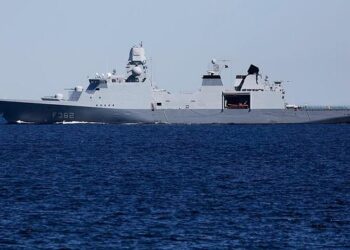Israeli Drone Attacks on Gaza Aid Flotilla in International Waters Raise Global Alarm, NGO Reports
Recent developments in the Eastern Mediterranean have captured worldwide attention as Israeli drones reportedly targeted a humanitarian aid flotilla en route to Gaza, operating within international waters near Malta. This incident, revealed by a prominent non-governmental organization, intensifies ongoing debates about compliance with maritime law and the safeguarding of humanitarian missions amid one of today’s most complex conflicts. Eyewitness accounts supported by satellite imagery suggest that this aggressive action risks further escalating tensions between Israel and Palestine while inviting increased scrutiny over military operations conducted in neutral waters. As investigations continue, international leaders are calling for restraint and dialogue to prevent further escalation.
Humanitarian Missions Under Threat: Implications for Aid Delivery to Gaza
The reported drone strikes against an aid convoy off Malta’s coast have sent shockwaves through humanitarian organizations and global observers alike. Such hostile engagements jeopardize the safety of personnel dedicated to transporting essential supplies—including food, medicine, and medical devices—to Gaza’s civilian population facing critical shortages due to prolonged blockades. Beyond immediate security concerns, these attacks risk disrupting vital relief efforts that millions depend on for survival.
This incident presents several significant challenges:
- Escalation of Regional Instability: Military actions targeting aid vessels complicate diplomatic initiatives aimed at easing access restrictions imposed on Gaza.
- Reduced Humanitarian Engagement: Heightened dangers may deter volunteers and NGOs from participating in future relief operations.
- Interrupted Supply Chains: Aggressive maneuvers threaten timely delivery of life-saving resources crucial for vulnerable populations.
- Diplomatic Repercussions: Demands for accountability could deepen geopolitical rifts among influential nations involved in Middle Eastern affairs.
| Affected Area | Description |
|---|---|
| Civilian Access to Aid | The ability of Gazan civilians to receive urgent humanitarian assistance is severely compromised. |
| Ngo Operational Challenges | < td > Increased security risks complicate logistics and raise chances of asset damage or loss.< / td >< tr >< td >Sustainability Of Relief Efforts< / td >< td >Planning future missions becomes more complex amid potential military confrontations.< / td >
Legal Considerations & Human Rights Issues Surrounding Attacks on Civilian Vessels
The drone strike targeting a civilian aid flotilla raises serious legal questions under established international maritime laws. The principle of innocent passage, enshrined within the United Nations Convention on the Law of the Sea (UNCLOS), guarantees that vessels engaged exclusively in peaceful humanitarian activities have the right to navigate through international waters without interference or threat. These recent events appear inconsistent with such protections.
Moreover, customary international humanitarian law requires special safeguards for civilian entities delivering relief during armed conflicts. Targeting these vessels not only violates maritime norms but may also breach human rights obligations designed to shield non-combatants during warfare.
In response, numerous NGOs are demanding impartial investigations into Israel’s military conduct related to this episode—arguing that intentional attacks against humanitarian missions could amount to war crimes if substantiated by evidence. Legal experts stress enhancing enforcement mechanisms globally as critical steps toward protecting civilians and aid workers operating within conflict zones.
| Criterium | International Maritime Law Perspective | Humanitarian Principles Perspective |
|---|---|---|
| Civilian Protection Standards | The UNCLOS framework prohibits hostile acts against peaceful ships at sea. | Differentiates combatants from protected non-combatants who must be immune from attack. |
| Proposed Action< span aria-hidden = "true"> | Responsible Entities< span aria-hidden ="true"> | Implementation Timeline< span aria-hidden=true"> <> Concluding Reflections on Drone Strikes Against Gaza Aid FlotillaThe interception carried out by Israeli drones targeting a convoy delivering critical assistance towards Gaza within internationally recognized waters near Malta has sparked widespread condemnation across diplomatic arenas worldwide. This episode underscores persistent volatility throughout the region while raising urgent questions about adherence to established norms governing naval conduct during times of conflict. As advocacy organizations persistently call for unimpeded access allowing lifesaving supplies destined for besieged communities inside Gaza’s borders,the broader ramifications extend beyond immediate hostilities — influencing future geopolitical dynamics across Middle Eastern affairs.The evolving situation demands vigilant monitoring combined with concerted efforts prioritizing dialogue over confrontation,to protect civilians’ welfareand uphold principles underpinning lawful engagementat sea.International stakeholders remain watchful,in hopes all parties will commit sincerelyto peaceful resolution pathways moving forward. ADVERTISEMENT |
|---|















